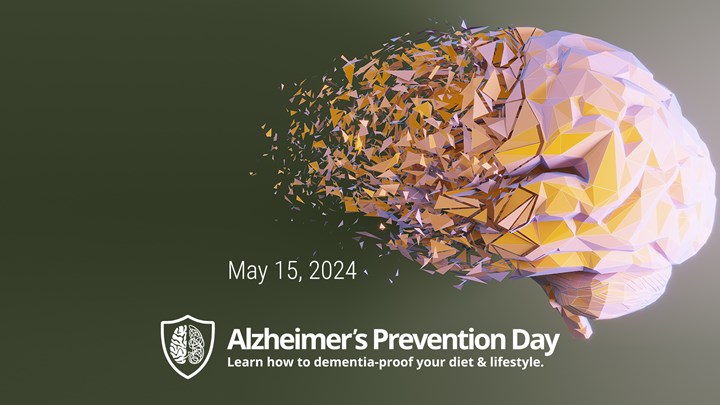Content Sections
Nature faces a cliff-edge
We were warned. But those warnings fell on the clearly deaf ears of governments and corporatocracies. A landmark new report from the Intergovernmental Science-Policy Platform on Biodiversity and Ecosystem Services (IPBES) warns that, “Nature is declining globally at rates unprecedented in human history – and the rate of species extinctions is accelerating”. The report confirms the significant impact of human actions on land and marine environments and climate change. Not only is the huge loss of biodiversity impacting the environment, but it’s causing economic, developmental, security, social and moral issues. As recent actions in London and around the world by Extinction Rebellion show, this is a situation that can no longer be ignored by citizens. Following the protests the UK, Parliament became the first in the world to declare an “environment and climate emergency”, seeking to start a wave of action worldwide. Recognising the links between the health of the environment and its impact on human health, the World Organization of Family Doctors (WONCA) have partnered with The Planetary Health Alliance and Clinicians for Planetary Health Working Group to call on medical doctors around the world to raise awareness within their communities. The ANH-Intl ‘Blueprint’ for health creation addresses the combined needs of citizen health, sustainable food and livestock production and the environment within which we live. Recognising the need to bring balance across all areas to sustain not only human health, but animal and planetary by working with, not against nature.
‘Hidden hunger’ highlighted
Nutrient deficiency is a common problem around the world, with an estimated two billion adults and children suffering from deficiencies of vitamins and minerals. Given that 75% of the food we eat comes from just 12 plant and 5 animal sources, it’s little wonder we’re lacking in those nutrients essential to our wellbeing. Primarily associated with developing nations, ‘hidden hunger’ is becoming increasingly prevalent in developed nations with the increased consumption of ultra-processed calorie dense/nutrient poor foods. In an effort to counter such deficiencies scientists are turning to GM technologies to boost nutrient levels in staple crops such as rice (vitamin A) and wheat (iron). Unfortunately, crop and food fortification only provides a sticking plaster on the real problem stemming from the depletion of soil nutrients from decades of intensive farming utilising high levels of chemical fertilisers and pesticides. It’s time to revert not only to sustainable agro-ecological techniques to improve the foundations from which our food comes, but to return to eating real food as nature intended.
EU pesticide approval transparency
After decades of campaigning by the citizen led #StopGlyphosate initiative, the Council of the European Union has taken a step towards increased transparency in the procedure for approving pesticides as part of the EU’s General Food Law. The publicly accessible database to be administered by the European Food Safety Authority (EFSA), will include all regulatory studies that have to be submitted by companies as part of the approval process for pesticides. At long last, this will give public access to most of the toxicity data, previously deemed confidential. Albeit a victory for citizen power, it does not change the fundamental issue of ongoing Big Corporate control and manipulation of such data. So grave are the environmental and health challenges facing us that business as usual is no longer an option. Dramatic change is needed now, which can only mean changing the way big companies do business.
Beating childhood diabetes naturally
Evidence shows type 2 diabetes can be reversed without drug use. Despite this, scientists continuing the search for a ’magic pill’ are lauding the results of a clinical trial showing the efficacy of liraglutide for improving glycaemic control in children with type 2 diabetes. Taking a step in the right direction, the UK city of Leeds has recently been hailed for its work in reducing childhood obesity through diet and lifestyle interventions. Although work has still to be done to assess the biological and social significance of the data. The ANH-Intl Food4Kids and Food4Health guidelines provides help and information on adopting a whole food nutrient dense diet to support the health of your whole family naturally.








Comments
your voice counts
09 May 2019 at 1:29 pm
Environmental guilt is the target by which fear is induced. While there is a consumer complicity - the essence of the corporate 'ego' of unchecked power is to 'outsource' not only the effects of consequence to the actual corporeal reality of others - but also the guilt of the intentional act - so as to enable such a parasitical and predatory intent to be sustained on the willing or dictated self-sacrifice of the populations being so used or abused.
The pivot to a negative energy 'Economy' at a new level of granular and global control is the 'Prize or Victory' to the illusion of power OVER Life. As if to Create Life and Health in our Own Image - except the god of such a wish is not a power shared and 'gives' only to take away and destroy.
Fear porn operates the degradation and undermining of our will and our mind as the expression of a true willingness. Fear of outcomes is no less deadly than the outcome - regardless whether truly founded or truly flagged or false assigned to diversions.
The Good News for any waking to a hell is our true need of true willingness - instead of the reactive dictate of fear-defined' necessity'. Fear can rob us of our wits and our true witnesses - and deliver us to evils in complex instruments of packaged deceit.
'Amygdala capture' is a self-sustaining investment in fear, and where fear thinks to see 'curtains' is where a true apocalypse draws them aside. The association of an unveiling with destruction is of fear of exposure in sin, shame or loss. Yet giving allegiance to such a fear is aligning in a purpose of sin, guilt and penalty.
No one wants it to fall on themself. No one wants to lose. Everyone then makes a world of denial by the apportioning of blame and penalty in power struggle to save their self and identified group identity.
Managing such a world becomes a task for A.I enhanced systemic identity management - in which the destruction of your true identity - albeit in distortion - is effected by a compliance to systemic 'protection'.
Without which life is to become at least believed to be impossible or terrible to think on.
09 May 2019 at 5:14 pm
Thanks as always for taking the time to share your thoughts Brian.
10 May 2019 at 8:53 am
Thanks for your willingness to let them be.
It is easier to deceive a man than show him he is (already) deceived - said Mark Twain.
We all have the impediment of thinking with an inherited and acquired mindset or world-view or 'identity'.
I seek to illuminate something of the nature of what that is - and does - on our behalf. Because at the level of suppressed emotional conflict, there is a desire to NOT know, NOT face or own, and hence NOT align in or accept healing. This gives the mind the job of seeming to know and manage something ELSE - and believing it by acting as true.
In this sense we are all afraid - and fear is the core impediment to communication - not just of information - but IN and of Life. So any communication that promotes or uses fear as its framing and driving force is more of a leverage of mind-framing than sharing life.
Re-learning to communicate consciously is an awakening relational responsibility but the use of the mind to create impact operates an entirely different purpose - even though it may be serving good intentions.
The marketing mind tunes into a target like a shaped charge - regardless the 'sell'.
There is a vibrational quality to our being that 'corporates' might call 'authenticity or passion' and then mimic the forms with assertive emotional expressions.
Health smiles from within, sharing and recognizing the worthy in life and in fellow beings.
Your voice counts
We welcome your comments and are very interested in your point of view, but we ask that you keep them relevant to the article, that they be civil and without commercial links. All comments are moderated prior to being published. We reserve the right to edit or not publish comments that we consider abusive or offensive.
There is extra content here from a third party provider. You will be unable to see this content unless you agree to allow Content Cookies. Cookie Preferences